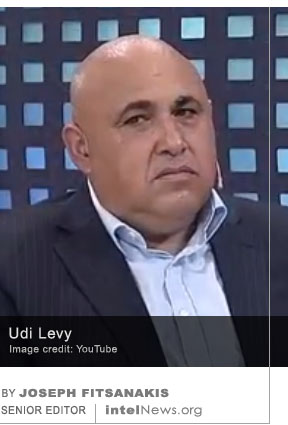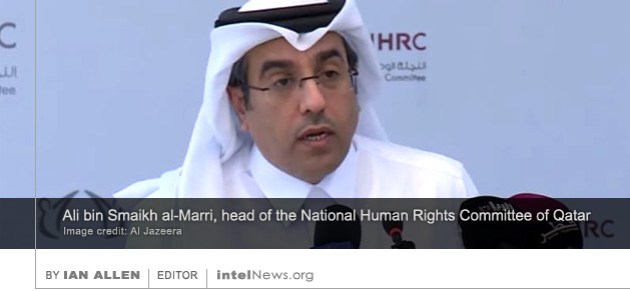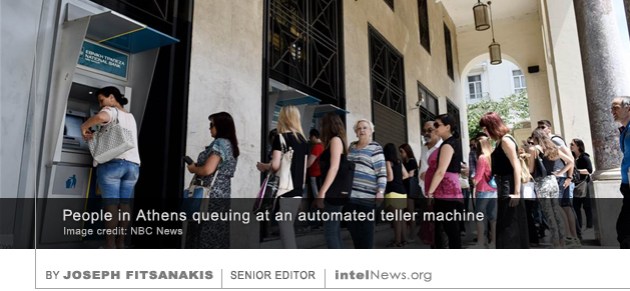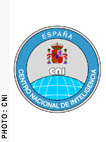Netanyahu ignored calls to disrupt Hamas finances, claims ex-Mossad official
February 26, 2024 7 Comments
 A RETIRED SENIOR MOSSAD official has alleged that Israeli Prime Minister Benjamin Netanyahu repeatedly ignored, and even frustrated, efforts to stop the flow of hundreds of millions of dollars to Hamas. This inaction may have enabled the Palestinian militant group to plan, organize and execute Operation Al-Aqsa Flood, which killed over 1400 Israelis on October 7, 2023, and sparked the current war between Israel and Hamas.
A RETIRED SENIOR MOSSAD official has alleged that Israeli Prime Minister Benjamin Netanyahu repeatedly ignored, and even frustrated, efforts to stop the flow of hundreds of millions of dollars to Hamas. This inaction may have enabled the Palestinian militant group to plan, organize and execute Operation Al-Aqsa Flood, which killed over 1400 Israelis on October 7, 2023, and sparked the current war between Israel and Hamas.
The allegation was made by Udi Levy, a 30-year veteran of the Israeli intelligence community, who served as an intelligence officer in the Israel Defense Forces before being appointed to head the Economic Warfare Division of the Mossad, Israel’s external intelligence agency. During his tenure in the Mossad, which ended with his retirement in 2016, Levy was a member of Task Force Harpoon, which aimed to disrupt the flow of funds to militant Palestinian groups, including Hamas.
Last week, Levy told the BBC’s flagship investigative television program Panorama that Task Force Harpoon had identified around 40 companies in the Middle East and North Africa, which were part of Hamas’ investment portfolio. These companies, based in countries such as Sudan, Algeria, Turkey, Saudi Arabia, and Qatar, were active in the areas of real estate, mining, construction, and tourism, among others. Some of the companies were even directly controlled by Hamas, said Levy.
The income from these financial investments allowed Hamas to use “billions, not millions” of dollars to build its military infrastructure in the Gaza Strip, according to the former Mossad official. That investment income was supplemented with direct cash infusions from Iran and Qatar, which in some cases arrived monthly through special envoys, according to Levy. He added that Turkey was “a critical focal point” in Hamas’ money network, as it served as a financial hub for the militant group’s holdings.
Levy told the BBC that he personally advised Netanyahu to “target Hamas’ finances” and explained to him that “Israel had the means to crush Hamas by using only financial tools”. However, Levy claims that, not only did the Israeli prime minister ignore Levy’s advice, but he proceeded to shut down the Mossad’s Task Force Harpoon. This is not the first time that Levy has made these claims. In December 2023, he told The New York Times that Task Force Harpoon analysts were so frustrated with the Israeli government’s inertia, that they resorted to “uploading some documents to Facebook” in hopes that the Israeli authorities would be forced to take action once details about Hamas’ finances were disclosed.
► Author: Joseph Fitsanakis | Date: 26 February 2024 | Permalink
 ►►This website has
►►This website has  An American former supreme allied commander of the North Atlantic Treaty Organization has warned that a possible Greek exit from the Eurozone “could become a geopolitical nightmare” for the European Union and NATO. James Stavridis, a retired four-start US Navy admiral, who served as NATO’s 16th Supreme Allied Commander Europe from 2009 to 2013, said solving the Greek crisis should not be left to the central bankers. In an article
An American former supreme allied commander of the North Atlantic Treaty Organization has warned that a possible Greek exit from the Eurozone “could become a geopolitical nightmare” for the European Union and NATO. James Stavridis, a retired four-start US Navy admiral, who served as NATO’s 16th Supreme Allied Commander Europe from 2009 to 2013, said solving the Greek crisis should not be left to the central bankers. In an article  Several Western countries issued travel warnings for Greece on Sunday, as the Greek government shut down all banks and imposed capital controls following the breakdown of talks between Athens and the European Union.
Several Western countries issued travel warnings for Greece on Sunday, as the Greek government shut down all banks and imposed capital controls following the breakdown of talks between Athens and the European Union. 










